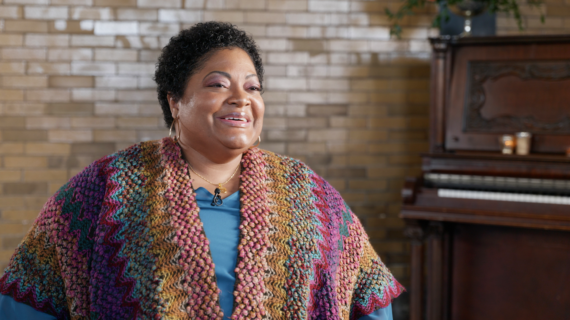Zac Schultz:
Late this afternoon House Speaker Paul Ryan decided not to hold a vote on his bill that would have repealed and replaced most of the Affordable Care Act. The vote was supposed to have occurred Thursday, on the seventh anniversary of the bill’s signing, but it became clear Republicans did not have the votes to pass their bill. Here’s what Speaker Ryan had to say.
Paul Ryan:
We came really close today but we came up short. I spoke to the president just a little while ago. I told him the best thing I think to do is to pull this bill and he agreed with that decision. I will not sugarcoat this. This is a disappointing day for us. Doing big things is hard. All of us, all of us, myself included, we will need time to reflect on how we got to this moment, what we could have done to do it better.
Zac Schultz:
Even before this vote was cancelled, we invited all the Republican members of Congress from Wisconsin to join us on this program, including Senator Ron Johnson and Governor Scott Walker. All of them declined. However, Democratic Senator Tammy Baldwin did join us earlier today to talk about health care. Senator Baldwin, thanks for joining us today.
Tammy Baldwin:
Thank you.
Zac Schultz:
Recent polling shows support for the American Health Care Act at 17% nationwide. Have you ever seen a bill this unpopular get forced to the floor for a vote when it’s unclear it can even pass?
Tammy Baldwin:
I haven’t seen anything like this before, and it’s been a tumultuous week in Washington D.C., as Republican members of the House seem to be talking amongst themselves rather than listening to the people who sent them to represent them. They seem to be discussing how to make a bad bill even worse in order to try to find a majority. It’s quite stunning to behold.
Zac Schultz:
Now, if it does pass the House, which is unclear at this point, it only needs 51 votes in the Senate. Do you think it could pass there?
Tammy Baldwin:
Certainly not in any form resembling what they are debating right now in the House of Representatives. We’ve already had several of my Republican colleagues for various reasons say this is a non-starter with them in the Senate. But I actually hope the House does what’s right when they vote, we anticipate later today, and turn it back. This is clearly something that harms Wisconsinites. It harms Americans in terms of higher costs for less care, shortening the solvency of the Medicare program, capping and cutting Medicaid, putting rural clinics and hospitals in jeopardy of having to shut out the lights. With big tax giveaways to the wealthiest. It’s just bad news on every front and especially after reading reports across our state in the last week of how harshly this impacts both western and northern Wisconsin, and older Americans and Wisconsinites, 45 and above. I just hope they find the resolve to listen to their constituents and vote no.
Zac Schultz:
If this repeal and replace effort fails, the president said he’s already ready to move on and let Obamacare stand. Do you believe that or do you think there will be more attempts in the future to reform, if this fails?
Tammy Baldwin:
You know, I think that if this fails, we should start doing what we should have been doing for the last seven years, and that is constantly working together to strengthen our health care system, to lower costs, to increase competitions, and to stand up to those powerful folks that are sort of rigging things in their favor. In particular I would mention the pharmaceutical companies that we are seeing double, triple, quadruple the price of lifesaving drugs like the Epipen we saw last year, and seeing in a continuing fashion this year. There’s no reason at all why the Congress of the United States shouldn’t work together to confront the real challenges that exist in any complex system like health care. But Republicans have confused, or have refused and have said repeal, repeal, repeal, for seven years, and now look where this has put us.
Zac Schultz:
Your Wisconsin colleague, Republican Senator Ron Johnson, has said they need to work with Democrats to fix Obamacare. Are there areas where you think both parties could work to improve the current law?
Tammy Baldwin:
Oh, absolutely. And this has been my posture all the way along. Health systems are complex. And the Affordable Care Act gave people access to health insurance who hadn’t had it before. And it was wonderful in that respect. People who had pre-existing health conditions or who had insurance but had annual or lifetime caps that sent them to medical bankruptcy. But even the Affordable Care Act was not the end. Certainly not perfect. And as we saw prices go up, we need to vigilantly and constantly be working together to confront that. Whether that’s working on the issue of the high cost of prescription medication or whether it’s trying to introduce more competition so that people can have choices and be able to afford their premiums and deductibles. But as we’ve seen this Trumpcare, this Republican proposal to repeal and replace sets all of those indicators in the wrong direction. So again, I hope that today, later today, that the Republicans reject this proposal and we get back to working across the party aisle on something that affects everybody we represent.
Zac Schultz:
Now, if this repeal and replace plan fails, are you worried Republicans could undermine Obamacare in other ways, by changing regulations at the federal administrative level or not funding premium subsidies in future years?
Tammy Baldwin:
You know, I hope that the mischief-making is done. The idea that we would put America's health and well-being behind partisan politics, I hope that today, if I had any sway over the outcome in the House, that we learn a lesson and that we begin to work together to advance everybody’s health and well-being. Their access to affordable, quality care. We always should be working together in that direction, not trying to score political points and when it was cast in that way yesterday, I understand that President Trump spoke with some of the House Republicans and you know, issued his stern warning. It was–it seemed more about political points than it did the well-being of Wisconsin citizens who all want to be able to protect their families and be able to get high quality, affordable health care for their, themselves and their families.
Zac Schultz:
We’ve got just under a minute left. But this isn’t the only big thing happening in Washington. The Supreme Court nomination of Neil Gorsuch is moving forward. You came out in opposition as soon as he was nominated. Have you heard anything to change your mind?
Tammy Baldwin:
I had a chance to study his record when he was on a short list of folks that President Trump might nominate. The things that distress me so significantly is the lopsided number of times he sided with powerful corporations over workers and retirees, where he sided against disabled students just trying to get a fair and equitable education in our K-12 system. When he’s decided against women’s health. You know, he decided in the Hobby Lobby case that corporations are people. That to me is counterproductive at this critical time when his nomination and his confirmation, if it goes through, will affect Americans for generations, not just years, but generations. And so I believe that Neil Gorsuch should be held to the 60 vote standard that previous Supreme Court nominees have been held to. If he can’t get 60 bipartisan votes then I don’t think Mitch McConnell should change the rules. I think Donald Trump should change the nominee.
Zac Schultz:
Senator Baldwin, thank you for your time today.
Tammy Baldwin:
Thank you.
Search Episodes

Donate to sign up. Activate and sign in to Passport. It's that easy to help PBS Wisconsin serve your community through media that educates, inspires, and entertains.
Make your membership gift today
Only for new users: Activate Passport using your code or email address
Already a member?
Look up my account
Need some help? Go to FAQ or visit PBS Passport Help
Need help accessing PBS Wisconsin anywhere?

Online Access | Platform & Device Access | Cable or Satellite Access | Over-The-Air Access
Visit Access Guide
Need help accessing PBS Wisconsin anywhere?

Visit Our
Live TV Access Guide
Online AccessPlatform & Device Access
Cable or Satellite Access
Over-The-Air Access
Visit Access Guide
 Passport
Passport


















Follow Us